It’s an unfortunate but practical reality that we, as Australians, live in a land of extremes. From bushfires to cyclones, floods and severe storms, the weather of our great southern land can certainly keep us on our toes. However, during times of disaster, we most often see the best of the Australian spirit, as friends, the local community and even those from interstate roll up their sleeves and assist in disaster recovery.
While we most often think of the importance of bringing in relief items to replace everything lost, we must also consider the impact of the waste left after a disaster and where this rubbish can be responsibly disposed of as communities begin to rebuild. This is where the skip bin, that Aussie staple of waste management, is at its most useful and efficient.
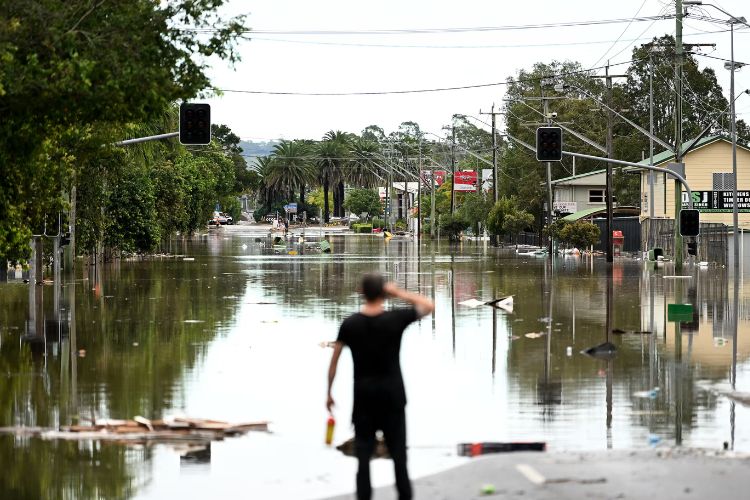
Image credit: TheGuardian.com
Local Response to Australia’s Natural Disasters
Bushfires, floods, storms, cyclones, and earthquakes — Australia is home to them all, and each type of disaster has its own unique waste challenges. The type of disaster that nature has thrown at us will determine the most effective methods of waste management, and local authorities will already have plans in place to make sure their communities are as adaptive to disaster management and relief as possible.
Dealing with Bushfire Aftermath: Skip Bins for Ash and Debris
Our rugged land is home to one of the most fire-prone regions in the entire world, and little strikes fear into the Australian heart like an oncoming bushfire. The Ash Wednesday bushfires in South Australia, for example, still live on as one of our nation’s most trying times. With flammable eucalypt trees and timber-framed houses, our regions can be particularly susceptible to these devastating fires. The challenges of bushfire debris lie in the complete destruction that these extreme fires tend to cause.
Safe ash and charred material removal should be at the forefront of recovery efforts. Particularly in charred housing frames, the danger of exposed nails, electrical wiring and other hidden dangers are present under layers of thick ash and charcoal. Great care should be taken when sifting through the burned-out remains of a building, and skip bins are an efficient and convenient place to store sharp and dangerous materials until they are ready for mass disposal.
Flood Recovery: Utilising Skip Bins for Water-Damaged Waste
On the other side of the disaster coin are the floods. Even our capital cities are no strangers to floods. The 2022 Eastern Australian floods affected both the cities of Sydney and Brisbane for months, as well as towns and cities all the way along the eastern coast of Australia. Brisbane residents won’t forget the 2011 floods either, seeing much of the city, especially the waterfront in and around South Bank, completely underwater.
The danger of floods is two-fold. First, the sheer destructive power of water is nothing new to Australians. Still, some people might not readily consider the health hazards and potential for disease that come very soon into the recovery. Removing water-damaged items and clearing away pools of stagnant water are priorities to ensure that bacteria, insects and water-borne illnesses do not thrive. Regular mass disposal of water-damaged items and building materials in a trusty skip bin will go a long way to preparing the site for rebuilding while preserving the health of those working on the disaster’s front lines.
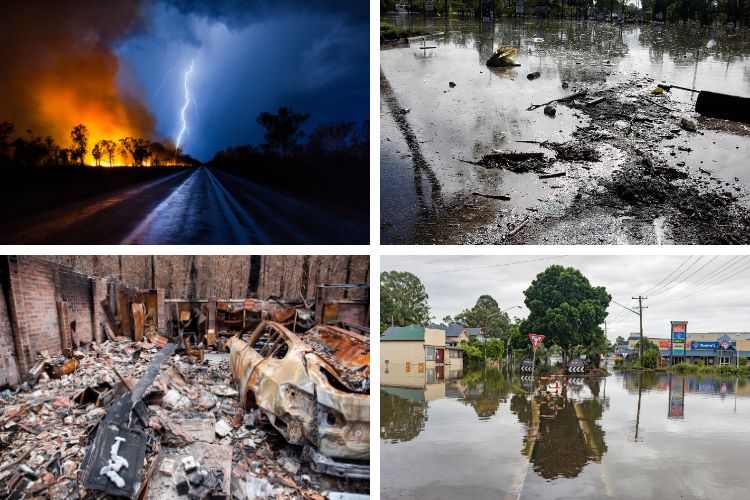
Storm and Cyclone Cleanup: Quick and Efficient Debris Removal
For those of us in the northern half of the country, cyclones can be a summer threat, but dangerous and damaging thunderstorms can reach every part of the country. The 2008 Queensland storms caused some $500,000,000 in damage and prompted an incredible clean-up effort that saw over 4000 homes in need of serious repair. Storm and cyclone clean-up combines the most difficult challenges of both fire and flood.
Like fire, cyclones and storms can tear homes apart, exposing the internal construction, such as shards of timber, electrical wiring or sharp fastenings, like nails or screws. They also present the immediate dangers of fast-moving floodwaters and the health hazards of stagnant pools. Damaged and broken furniture, bent metal and shattered glass windows are also hazards to deal with in the aftermath of Australia’s wildest weather.
After storms and cyclones, skip bins are your best bet to facilitate rapid clean-up and restoration efforts. By removing the masses of debris with an efficient and trusted skip bin service, you are making the disaster site safer and moving towards restoring and rebuilding that much quicker.
Earthquake Debris Management: Skip Bins for Structural Rubble
Earthquakes, perhaps, don’t grab as much attention in Australia as fire, floods and storms, but they occur more often than you may think. When the ground shakes, our buildings’ foundations become susceptible to cracking and crumbling, and the stability we take for granted in our towns and cities can quickly become piles of broken bricks, mortar and plaster. Like cyclones and fires, how earthquakes can crack open our buildings presents many dangers and health hazards beyond the initial disaster itself.
Having skip bins on hand means a simple and efficient solution for the sorting and disposal or recycling of structural waste. By sorting bricks from metal, timber and plaster, not to mention any furniture that was damaged in the quake, recovery crews have the best chance of safely securing sites and prompting an efficient rebuild, as some old materials, like metals, can eventually be repurposed for the new.
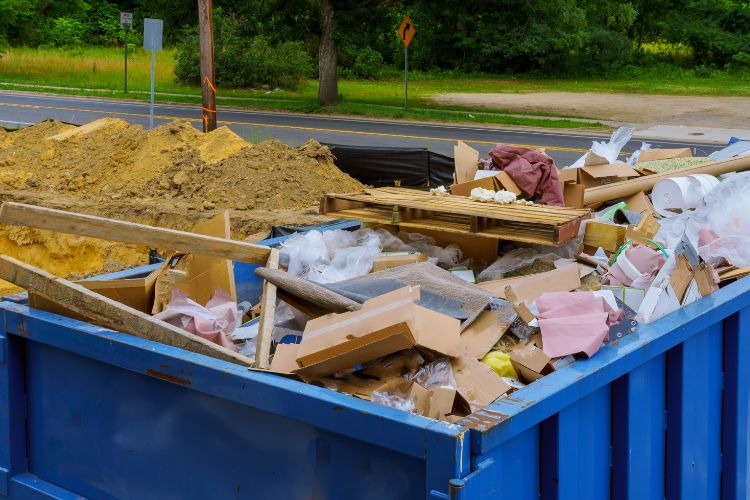
Optimising Skip Bin Usage in Disaster-Affected Areas
The first (and only) consideration people may have when choosing a skip bin after a disaster is size, but skip bins come in different sizes for good reason. Particularly if items are now a health hazard, such as materials contaminated with sewage and wastewater, it might be better to remove smaller loads at quicker intervals. This keeps the site safe and preserves the health of clean-up crews.
The type of debris that needs to be disposed of will also affect the type of skip bins needed. Many materials, even those that are bent and broken, can be efficiently recycled and repurposed, rather than carting everything from a disaster to the general rubbish tip. Calling your local skip bin service can guide you in an emergency, making navigating your waste disposal needs a simple and stress-free experience. With their wealth of resources and tips, skin bin services can help every step of the way, from preparation to disposal. Consider pitching in with neighbours when hiring a skip bin for the street to make even a large skip bin affordable in times of difficulty.
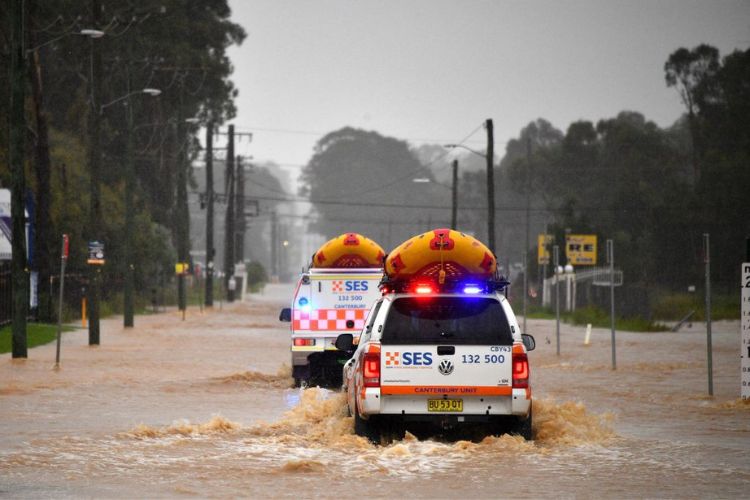
Image credit: ASPIStrategist.org.au
Local Safety, Environmental Practices, and Regulations
When cleaning up a disaster zone, the environmental impact cannot be overstated. While we are often focused purely on the human factor, we cannot turn a blind eye to the ecological cost of disaster, particularly in the event of chemical or sewage contamination. Understanding and complying with your local council rules for skip bin usage is not a hassle or annoying red tape; the requirements ensure that everyone is and remains safe, from the first responders to you and your skip bin disposal experts.
Contact your local council for more information, and if you suspect chemical or wastewater contamination, inform emergency services and your skip bin provider so that everyone is aware of the health hazards they are handling.
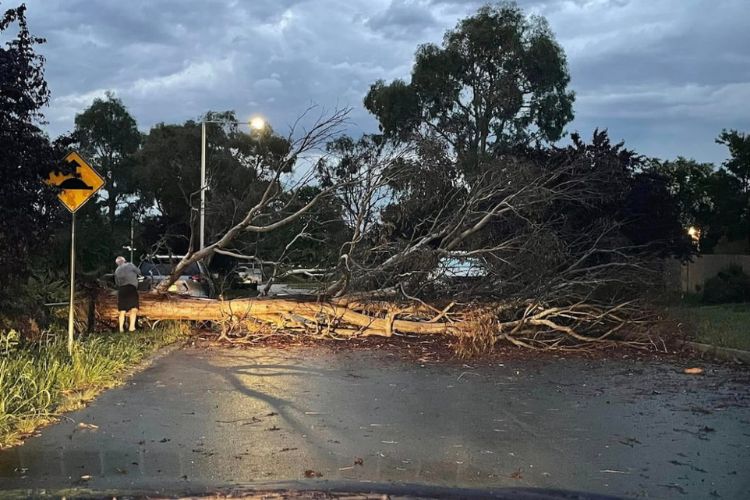
Image credit: CanberraDaily.com.au
Community Engagement in Cleanup Efforts
It is in times of disaster and hardship that we often see the best in community collaboration. Australians love to lend a helping hand, and this is certainly true during disaster cleanups. On Friday, 8 December, a severe storm hit the ACT, leaving 13,000 homes without power and causing widespread destruction. Skip bins were immediately deployed all over the affected area, and over 300 people contributed to the recovery effort. Together, they helped to dispose of “over 245 cubic metres (or 70 skip bins) of storm debris”, prompting a massive thanks from the ACT government for the community effort.
The importance of preparedness and community cooperation after a disaster cannot be overstated. Natural disasters are a fact of life in Australia, and the odds are that all of us will see at least one in our lifetime. When we do, let’s not forget the humble skip bin as an essential part of disaster recovery as we rebuild together.
Best Price Skip Bins services all over Australia, including Brisbane, Sydney, Melbourne, Adelaide and Perth, so the next time you’re faced with wild weather, call our friendly and understanding team at 1300 79 11 32. We will be able to guide you through the whole process and ensure that your waste needs are taken care of promptly and considerately.
